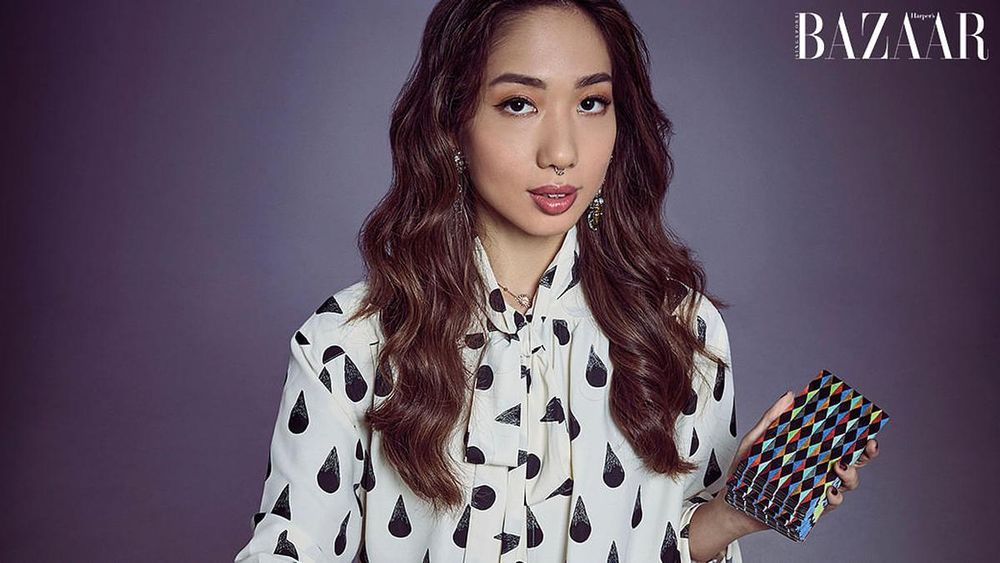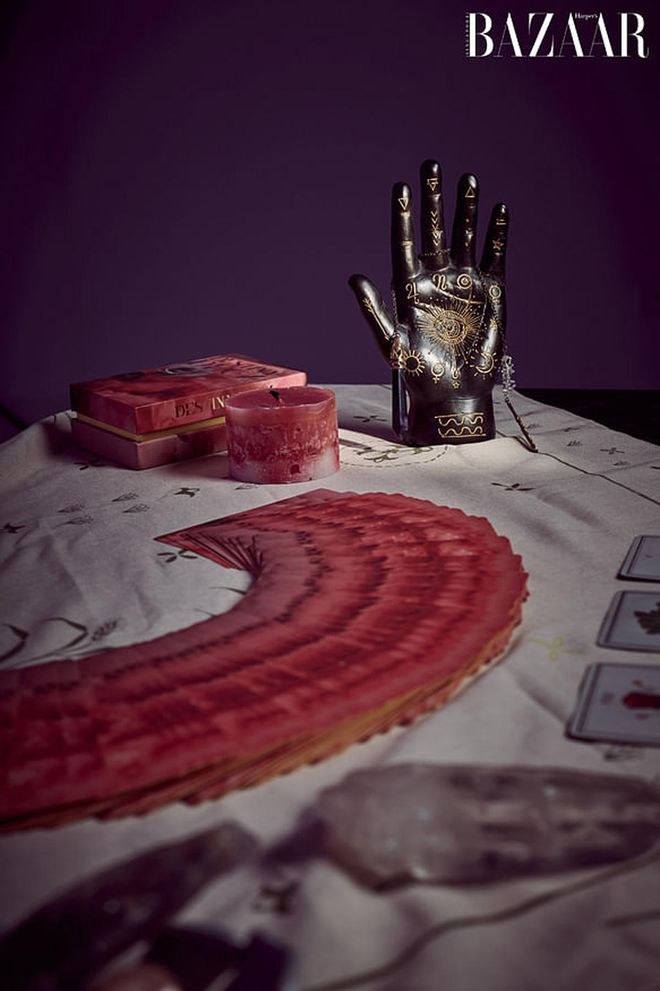A Tarot Card Reader On Tarot Reading As Self-Reflection And Its Rise Among Gen Z In Singapore
For Elaine Mok, tarot reading is a language that provides new possibilities and perspectives, where self-care has shifted to self-reflection.

Who should you vote for, what should you read, what should you do if you have a sticky issue—these are but some of the questions that Elaine Mok, a Gen Z tarot card reader, gets asked during a session. Mok operates under the Instagram handle @tarotonthemoon and a scroll through her feed reveals her readings into everyday mysteries that often flummox people. We sat down with this Gen Z clairvoyant to understand her take on the growing trend of tarot reading among young people in Singapore.
Related article: Anya Taylor-Joy Embodies Elegance In A Completely Beaded Tarot-Themed Dress
How would you describe what it is that you do as a tarot reader?
I read tarot cards and the way that I conceptualise that is as a means of self-reflection. The tagline that I use is “tarot reading for radical reflection.” “Reflection” is about your own experiences and seeing how they line up with the cards and the “radical” aspect is about not being afraid of change and linking the personal to larger social, and even political issues as well. As Gen Zs, we are more aware of intersectional, socio-political factors that intertwine even with spirituality. I believe in both love and light as well as shadow, and linking that to structural issues that we face in society.
What is a common misconception people have about what you do?
I don't think tarot reading replaces therapy, medical treatment and any of these professional avenues. It is just there for guidance and reflection. It gives you that extra perspective but it does not replace the actual work that you need to do in your everyday life nor does it replace professional advice.
I don't like to think of tarot in terms of just prediction, because how helpful is prediction anyway? If you know "what is going to happen" it boxes you into a certain mindset and way of doing things, which is quite debilitating and immobilising. Even when I'm talking about the future, I always tell my clients we're looking at possibilities and projections.
What motivated you to join this industry and what keeps you interested today?
It so happened that I was working at a bookstore called The Moon and they invited me to be their resident tarot card reader. Tarot is like a side business. School is my sun and tarot is my moon and they complement each other well. I can see how everything connects, because ultimately, linguistics (which she pursues graduate research in) is just the study of language and meaning-making, and tarot is just that—meaning-making.

hbsg-elaine-mok-tarot-reader-proprs-2
Related article: Dior’s Maria Grazia Chiuri Explains Our Obsession With Tarot Cards
What are the demographics of your customers?
The majority of my audience is either millennials or Gen Zs. The youngest person I've done a reading for was in primary school and the oldest person I've given one to was in their seventies, so it's a super wide range. I do public events where you can’t control who your audience is, so you get whoever comes to you. The people who approach me for private readings are firmly within the zillennial age group.
Why do you think there is a growing interest in this area, especially with Gen Z?
As Gen Zs, we are witnessing the breakdown of ideologies that millennials and previous generations believed in, for instance, neoliberal capitalism or hustle culture. Thus, we are questioning these structures and questioning what our values are in relation, and also in differentiation, from the values of our previous generations. Now, we're looking more into self-knowing, self-care and self-understanding.
Intersectionality too is a Gen Z value and tarot is intersectional because you’re looking at how different beliefs and systems intersect with each other and how that applies to your life. Our defining trait is this questioning and tarot is just questions. You pull out one card, you ask a question, and it gives you five more questions.
Historically, women, especially from marginalised groups, engaged in tarot reading. How do you as a female practitioner resonate with that history?
I don’t want to say that witchcraft or magic is only for women. I think it is empowering to adopt the view that women have a special connection to magic but I think it’s open to all genders. Female, male, non-binary, wherever you lie on the spectrum. It doesn’t just belong to one culture but different communities. Tarot is not just for fortune telling but it is also being used in therapy settings or for social justice movements.
I’m interested in the ethics of tarot reading, not just client ethics, but also social ethics, because I think as practitioners, we need to be aware of these issues of belonging, ownership and respect. How can we say that we respect other people when we don’t respect the practices that we are using and drawing from?
Related article: The Best Astrological Gifts For Any Zodiac Sign
This interview has been edited for clarity.
Photographed by Lawrence Teo
Styled by Gracia Phang
Hair & Makeup: Sha
Content Producer: Brandon Chia
Stylist’s Assistant: Zoe Tauro